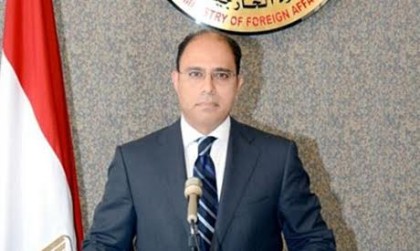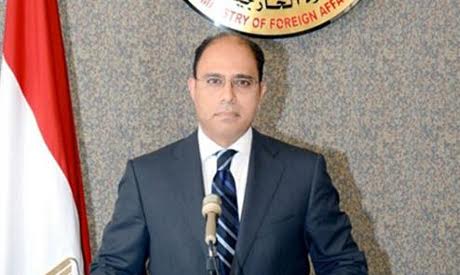 The harsh criticism that met the Egyptian newly-ratified anti-terror law has been described as “a lack of accurate analysis” by foreign ministry spokesman Ahmed Abou Zeid on Wednesday.
The harsh criticism that met the Egyptian newly-ratified anti-terror law has been described as “a lack of accurate analysis” by foreign ministry spokesman Ahmed Abou Zeid on Wednesday.
He claimed that the law was tailored according to the Egyptian reality but revealed that the law drew inspiration from the U.S Patriot Act and the British Terrorism Act.
Local and international rights campaigners alongside pro-democracy advocates lamented that the law restricted the rights of the civilian population while enhancing those of the security forces.
Amnesty International labeled it a “draconian” law while Human Rights Watch said it is “a big step towards enshrining a permanent state of emergency.”
A memo from the foreign ministry stressed that Egypt is “committed to its human rights obligations under the Egyptian constitution and international human rights treaties and conventions” and that the anti-terror law together with its definition of terror, criticized as being too vague, was drafted to “match the evolving nature of terrorist crimes.”
When a new parliament is elected, the law could be reviewed but Spokesman Zeid urged critics to respect decisions independently taken by Egyptian authorities because “foreign criticism and remarks on the law stem from a lack of accurate analysis of its provisions as well as the failure to see its objective.”
Washington fears that the law “could have a significant detrimental impact on human rights and fundamental freedoms” but Cairo responds that it will help curb insurgency and terrorist attacks that it has been facing for the past couple of years.
Extremist groups have claimed most of the attacks in Egypt but authorities believe that supporters of the banned Muslim Brotherhood are also involved.



